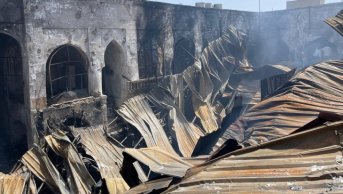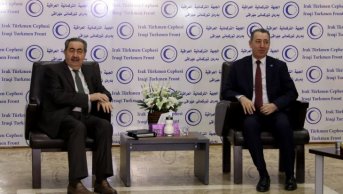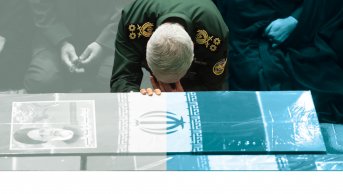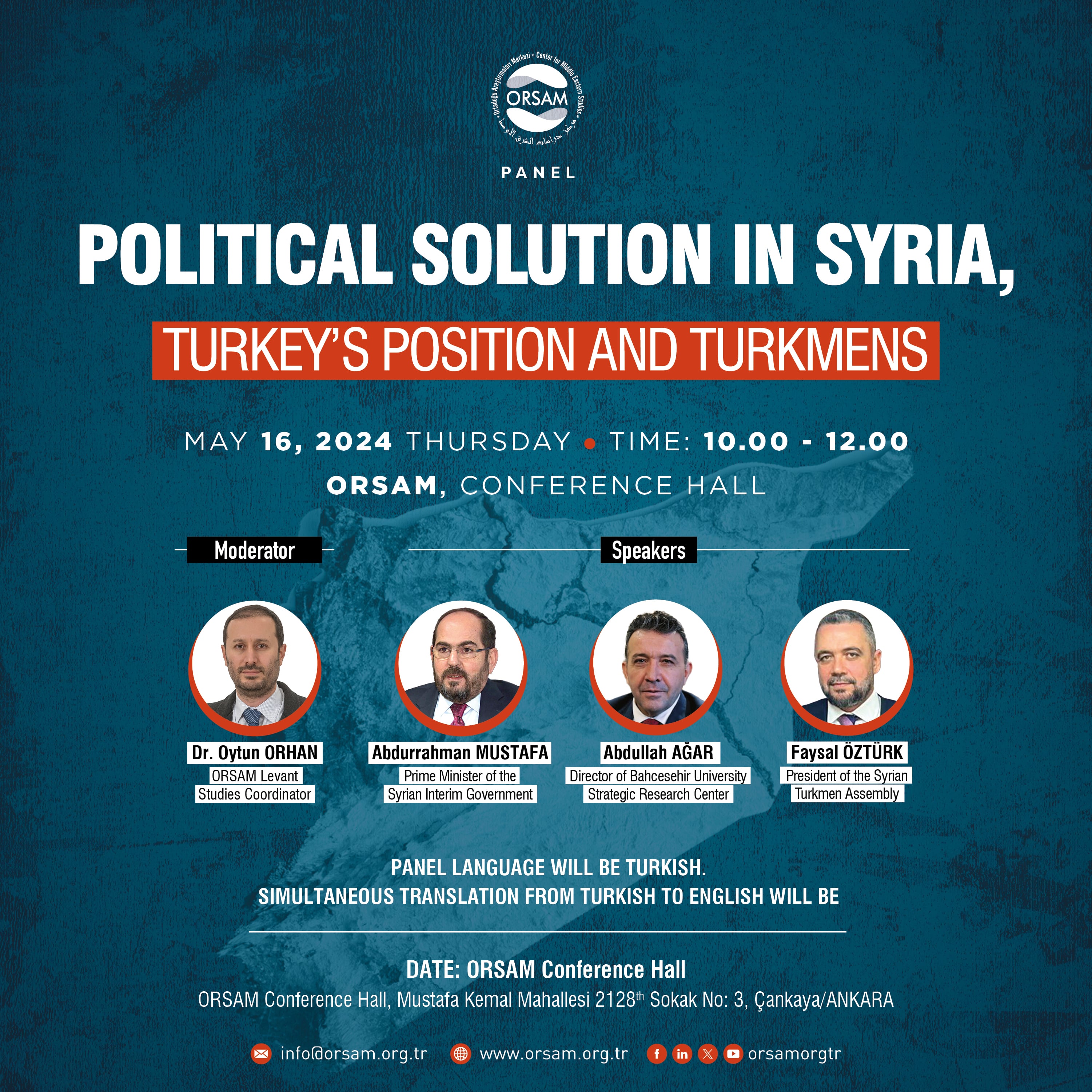Elections in the Krg and the Representation of Turkmens With the Quota System
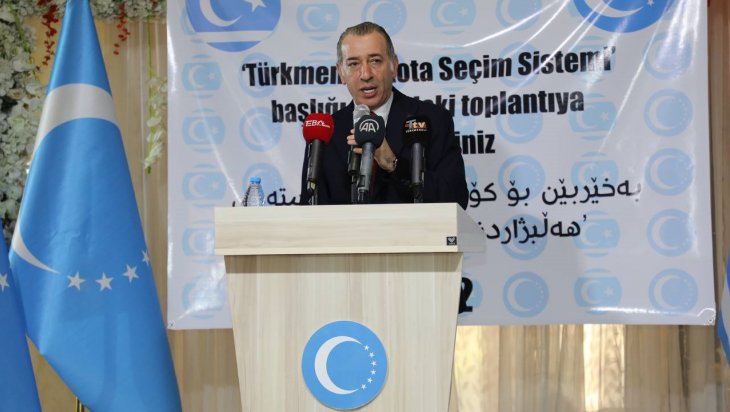
The Iraqi Kurdistan Regional Government (KRG) was officially established in 2003, yet a de facto autonomous Kurdish administration was already established after the 1991 formation of a no-fly zone in northern Iraq and the establishment of a parliament in 1992. This administration gained legitimacy and formality with the overthrow of Saddam Hussein's regime. A total of five parliamentary elections were held in 2005, 2009, 2013, and 2018. The KRG parliament consists of 111 deputies. According to the result of the 2018 elections, the two largest parties in the region, the Kurdistan Democratic Party (KDP) with 45 deputies, and the Patriotic Union of Kurdistan (PUK) with 21 deputies, constitute the majority of the seats in the regional parliament. Minorities living in the region were given the right to vote in the parliament on a quota system with 5 seats before the 2005 elections and then 11 seats.
Zana Halit, KDP Group Chair of the KRG Parliament, stated in February 2022 that the political parties in the region agreed to hold the elections at the appointed time and that the region should now have a constitution. Parliamentary elections in the KRG were planned for 1 October, 2022. However, the KRG's politics were negatively affected by the government formation crisis that emerged after the early parliamentary elections on October 10, 2021, and the following political disagreements. The regional elections were clouded by factors such as differences of opinion between the KDP and PUK over the presidential candidate, disagreements between Kurdish political parties, economic problems in the KRG, disagreements between Erbil and Baghdad, and the inability to form a central government in Baghdad. In particular, one of the reasons why the elections in the KRG could not be held was because of the expected regulations in the KRG election law and the quota arrangement.
The electoral system in the KRG is a single-zone electoral system. The governorates of Erbil, Sulaymaniyah, and Duhok form a single electoral zone in the KRG. It is a system that the KDP greatly benefits from. The PUK in particular and other political actors such as the Kurdistan Justice Community, the Kurdistan Islamic Union, Change, and the New Generation Movement oppose this system by advocating for the multi-regional election system. The KDP's dominance over the minority seats in the parliament is likely to be overthrown if the election law is amended and the minority quotas are extended to more than one region. Therefore, this situation is one of the reasons why parliamentary elections were not held in the KRG.
Turkmens live in the KRG as the second largest group after the Kurds. However, they are not represented in public offices in the KRG due to political and administrative pressures. The quota system enables the representation of Turkmens by 5 deputies in the 111-seat regional parliament. The quota seats affect the numerical and political balances between the political parties in the KRG, as they can manipulate the Turkmens living as the majority in Erbil, where the KDP is dominant, and thus affect the numerical and political balances among the political parties in the KRG, despite claims that some of the quota seats are under the control of the KDP. This situation caused trouble between the KDP and the PUK. The Kurdish political parties in Sulaymaniyah have made statements demanding the reduction of the number of seats in the quota, citing that some of the deputies represented by quotas are under the influence of the KDP.
Initiatives to reduce the number of quota seats are important for the Turkmens, who cover 5 of the 11-person quota. Various Turkmen politicians, especially Iraqi Turkmen Front (ITF) officials, demanded that the quota be increased, not reduced. Aydın Maruf, Regional Minister for Formations of the KRG and Member of the Political Bureau of the ITF, stated that as the ITF, they are not a party to these political conflicts; there is a political conflict between the Kurdish political parties regarding the quota because there is an election center in the region related to the Turkmen quota. stated that they are in favor of the distribution of the quota because they do not find the views on the separation of the quota according to regions correct.
Some Turkmen political parties are concerned that the KDP meddled in the special elections to its advantage through the Peshmerga votes, hindering the election of real representatives by rigging the elections under the pressure of powerful political parties. Based on this concern, Turkmens may argue that the votes used in the special elections, which are exclusive to the security forces, should not be included in the votes of the deputies elected from the quota.
Turkmens advocate increasing the total number of quotas in the KRG from 11 to 15, and increasing the Turkmen quota from 5 to 7. He also stated that special efforts should be made to elect the real representatives of minorities and that the groups benefiting from the quota should also be included in the election commission. ITF Erbil Deputy Imdat Bilal also stated that they do not accept the current quota of 11, and instead of reducing the number of quotas, they want the number to be increased. KRG Parliamentary Secretary Muna Kahveci stated that the 5 deputies allocated from the quota for Turkmens are insufficient and that they have projects to make legal changes in the election law and to give Turkmen the right to 30 percent representation in various government institutions.
It is known that the Turkmen population in the KRG is dispersed among different settlements within the governorates. Therefore, if the system of multiple constituencies is implemented, it may lead to the dispersion of Turkmen votes. When the sociological structure and identity politics of the region are taken into account, even increasing the number of quota seats may negatively affect the ITF.
Can ITF Conduct Different Policies in the KRG?
Turkmens are recognized as the second main group, according to the statements of the KRG authorities. However, Turkmens are represented in the KRG government and parliament through the minority quota. In this case, the ITF can accept the minority status in the KRG and increase the number of quotas for the Turkmens. If this happens, at least 1 deputy from the KRG parliament is required, not only from the Turkmens in Erbil but also from the Qifri Turkmens, who are administratively affiliated with the central government but politically affiliated with the KRG. Or they may not accept the minority status and form a coalition with other Turkmen parties as the second main element in the region and for stronger representation. At this point, the ITF may follow a different policy in order to obtain the rights of the Turkmens in the KRG. The KRG consists of three governorates: Erbil, Sulaymaniyah, and Duhok. Erbil and Duhok are under the control of the KDP, while the province of Sulaymaniyah is under the control of the PUK. The Turkmen population in the KRG is concentrated in the provinces of Erbil and Sulaymaniyah. In this context, the ITF may negotiate with KDP and PUK senior officials and demand the rights of the Turkmens in their regions. In addition, Kifri district, which is de facto administered from the governorate of Sulaymaniyah, is occasionally exposed to the attacks of the terrorist organization ISIS. Unemployment and immigration incidents are also important problems in this district in addition to these attacks. Therefore, in order to address the security vacuum in Kifri district, the ITF may request the establishment of a Turkmen Force from the Ministry of Peshmerga, and a special budget to be allocated to this militia by the KRG parliament.
The distribution of Turkmen representation by quota seats in the KRG Parliament is as follows: ITF is represented by 1 seat, the Turkmen Development Party by 2 seats, the Turkmen Reform Party by 1 seat and the Nation Party by 1 seat. Except for the ITF, these parties are only represented in the KRG. The Turkmen Development Party, which is known to be close to the KDP, obtained most of the quota seats allocated to the Turkmens in the KRG. The Turkmen Development Party, which is not well-established in the region unlike the ITF, either mobilizes its voters well in the elections or receives votes from the security forces (Peshmerga) of the region in special elections under the orders of the KDP, which it is close to. Therefore, the ITF may advocate the view that no votes should be cast for the quota seats in the "special elections" in which the security forces vote in the KRG parliamentary elections.
It is important for the ITF to take the local political balances into account. If the number of quota seats claimed by the Turkmens is increased, it will be beneficial for the Turkmens in general. Looking at the elections held in past periods, the ITF has succeeded in electing deputies from Erbil in every election. Even though Turkmens live in Sulaymaniyah province, they are not represented in the regional parliament. One could possibly claim that the absence of any Turkmen party in Kifri district gives the ITF power and an advantage. The ITF claims the Turkmen community's right to national representation in itself, and of itself and can also win one seat from the Kifri district in the PUK region. If the number of seats in the quota is increased, it is important that the ITF, as the other powerful party in the region, hold talks with the senior officials of the PUK for obtaining that seat. Thus, the ITF can provide a significant political balance between Erbil and Sulaymaniyah.
The Turkmens were not invited to two separate meetings on the election law and quota system in Erbil on June 11 and September 1, 2022, attended by representatives of the KRG political party and the UN Special Representative for Iraq, Jeanine Hennis Plasschaert. It sparked many criticisms and reactions. From this point of view, ITF Political Bureau Member Aydın Maruf met with the Iraqi Kurdistan Islamic Union delegation, Kurdistan Justice Community (Komel) Secretary General Ali Bapir, and Yezidi Leader Mir Hazim Tahsin Beg between August 14 and 26. These meetings by Maruf are evaluated as a request for support to increase the number of quota seats demanded by the Turkmens in the parliamentary elections to be held in the region.
On the other hand, the parliamentary elections in the KRG were postponed due to the expected gains from the formation of a central government. These expectations involve the revival of Article 140, a boost to the KRG budget, extending influence to other disputed regions, especially Kirkuk, and gaining more share from the oil, as the welfare of the KRG people and their living standards are expected to rise. In addition, increasing the representation of Turkmens in the KRG Parliament can contribute to democracy in the region and to the political and ethnic balance in Iraq in general.
This opinion was published on the Middle Analysis Magazine on December, 2022, with the title "IKBY’de Seçim ve Türkmenlerin Kotayla Temsili".

